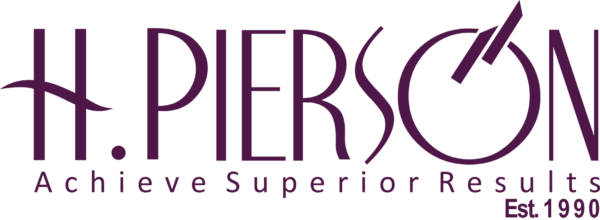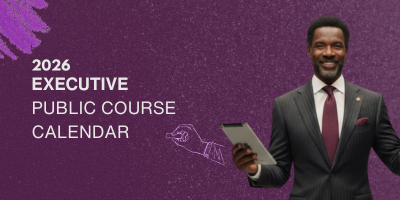What Skill Do You Need To Be In Talent Acquisition
March 20, 2023 0Human Resources
14 Talent Acquisition Skills Needed For Success In TA
What is one important skill needed to become successful at talent acquisition? To help you with Talent Acquisition Skills, we asked CEOs and CHROs this question for their best insights. From “Ability to Sell and Influence” to “Emotional Intelligence”, there are several recommendations that may help you with Talent Acquisition Skills in the future.
Here are fourteen insights for Talent Acquisition Skills:
- Negotiation
- Multitasking is Key
- Ability to Sell and Influence
- Reading Between the Lines
- Emotional Intelligence
- Get Your People Skills Up!
- Look Forward and Behind.
- Good Cost Management Skills
- Organization With Scheduled Follow-ups
- You Have to Be Able to See Beyond the Resume
- One Skill to Become Successful at Talent Acquisition
- Paying Close Attention to Detail
- Aspiring Ta Pros Should Put On their Listening Ears
- Industry Domain Expertise
Negotiation
Staffing is the toughest sales job on the planet because you have to illustrate to both parties that it’s the right choice. If you sell a product, service or even an idea, half the work is already done. A car doesn’t have an opinion. It doesn’t say, “thanks for the offer, but the dealership countered and I’m going to stay where I am.”People are tricky. Hiring managers and candidates each come with wish list of requirements that may not be realistic. Sifting the vital from the ideal, aligning needs, and earning the proverbial handshake all require the art and science of negotiation.
Multitasking Is Key
Multitasking is key for talent acquisition when you have dozens of people to interview to fill multiple roles. The key is to work quickly, but not too fast. How can you screen multiple people in a shorter amount of time? Take time to prepare your interview questions in advance and think about what red or green flags you’re looking for as folks answer them. Letting candidates self select into or out of the process will save you time further down the line.
Ability To Sell And Influence
If there is one skill that is important for talent acquisition, it is the ability to sell and influence the outcome. In order to be successful in talent acquisition, you need to be able to effectively sell the company, the role to potential candidates, and influence the outcome. This requires being able to articulate the company’s mission and values, as well as being knowledgeable about the role and the team. It also requires being able to pitch the company in a way that is attractive to top talent. This is not an easy task, but it is essential for success in talent acquisition.
Reading Between The Lines
Being able to read people or “read between the lines” when performing interviews is an invaluable skill for a recruiter. Sometimes it’s not what the applicant said but the way that they said it that either qualifies or disqualifies them.Being able to read someone through a voice or video call is an important skill, as it’s how many interviews are conducted now. Being able to discern if someone is telling the truth or withholding information is critical when talking about key skills required for the position. You don’t want to have your name on a candidate endorsed to a shortlist if they lied about their qualifications.Learning to read between the lines or becoming better at reading people will help you catch and hire the best talent while simultaneously culling those who aren’t qualified.
Emotional Intelligence
The most important skill to be successful at Talent Acquisition (and many other areas in HR and business) is emotional intelligence. As an executive coach and former talent acquisition director, I know firsthand the importance of emotional intelligence in being able to successfully attract, screen, recruit and onboard talent. Emotional intelligence is defined as a set of skills that collectively establish how well we understand our own and other’s emotions, how well we use emotions to cope with stress, solve problems, make decisions and interact with others. A high level of emotional intelligence supports talent acquisition professionals to navigate both internally and externally. Emotional intelligence is a skill and thus, can be built over time with the right support. As a strategic talent advisor, I recommend all TA functions I work with to invest in the development of emotional intelligence for all team members.
Get Your People Skills Up!
Someone who is planning to take on a talent acquisition role needs to know not only how to work with people, but how to work with many people at once. Internally, talent acquisition specialists often are required to work with multiple managers in departments outside of their own. Externally those working in talent acquisition need to be able to vet and onboard those applying to positions at their company with accuracy. This vetting and onboarding process requires people skills too like interviewing candidates and salary negotiation. When it comes to a career in talent acquisition there is no such thing as being too much of a people person.
Look Forward And Behind.
To truly become effective at talent acquisition, it is important to remember to look forward and behind. While we are always dazzled by the latest shiny objects in Talent Acquisition, be it AI, TikTok, digital retargeting or new tech stack, sometimes it pays off to go “old-school.” Tactics that have worked effectively in the past e.g. flyers, posters, radio and mobile billboards are still especially effective for disrupting your target audience; particularly a passive candidate who is not actively searching the job boards. And while it’s great to keep your pulse on tomorrow’s trends, sometimes you can distinguish yourself AND your talent acquisition results by honoring the tried and true recruitment marketing methods of yesterday.
Good Cost Management Skills
Good cost management skills are a must for talent acquisition team members. A bad hire can cost companies thousands in training and re-hiring. Satisfying the monetary requirements of both the applicant and the company is no easy feat too. Finding the perfect balance to appease both parties takes not just numerical prowess, but patience and steadiness as well.
Organization With Scheduled Follow-Ups
Recruiting is a very fluid process with new applicants that need to be reviewed, scheduling interviews for other candidates in the pipeline, and making offers once you’ve found the right employee!When you’re managing the candidate pipelines for 15 or more jobs, you’ll see that some candidates can lag behind others and need a little nudge from time to time.My employer uses Greenhouse and many times our interview request emails and HackerRank emails end up in candidates Spam folders. I review the pipeline a few times a week and will set follow-ups on various candidates if they are lagging behind.Organization is key to keep up with a massive recruiting workload!
You Have To Be Able To See Beyond The Resume
To acquire highly-skilled talent on a consistent basis, you have to be able to see past the resume. While candidates should have polished resumes and CVs that showcase their experience and skills, there are other important things to look for. For example, if your company has a well-established culture, someone who will likely not contribute to that “vibe” may not last long. And with retention rates still dropping and onboarding becoming more and more costly, it’s more important than ever to make the right decisions.
One Skill To Become Successful At Talent Acquisition
I think one important skill needed to become successful at talent acquisition is communication. You need to be a successful communicator in order to communicate to your applicants what a great company you are recruiting for and the benefits that are offered at this company. Communication is also needed to write an effective job announcement to pursue applicants to apply for positions.
Paying Close Attention To Detail
When working with people, it is critical to recognize subtleties. This type of role necessitates someone who understands the value of accuracy and thoroughness. The ability to identify errors and potential weaknesses, as well as manage them until a satisfactory result is achieved, is critical to being efficient and professional. Candidates with high attention to detail are thorough and demonstrate the ability to focus on both minor and major details while completing a task.
Aspiring Ta Pros Should Put On Their Listening Ears
If you’re looking to get into talent acquisition it’s time to practice listening. While it may seem obvious, this skill is one TAs must perfect. This career requires sitting through multiple interviews each day. By the time you’ve hit your fifth candidate, all answers may sound the same. Truly listening allows a TA to pick out answers that best align with the open job and follow up with questions to dive deeper. Doing so makes it significantly easier to find the right fit for the role.
Industry Domain Expertise
The best recruiters understand the industry they practice in. They know the competitive landscape, who are the top players, the differentiators amongst them, and often the culture, pay and leadership within the companies. This helps on a number of levels, especially when it comes to candidate negotiation. If you know who they are likely to be interviewing with you can turn a mind quickly with the right insights and show your confidence behind the company/client you are representing.
Source:



